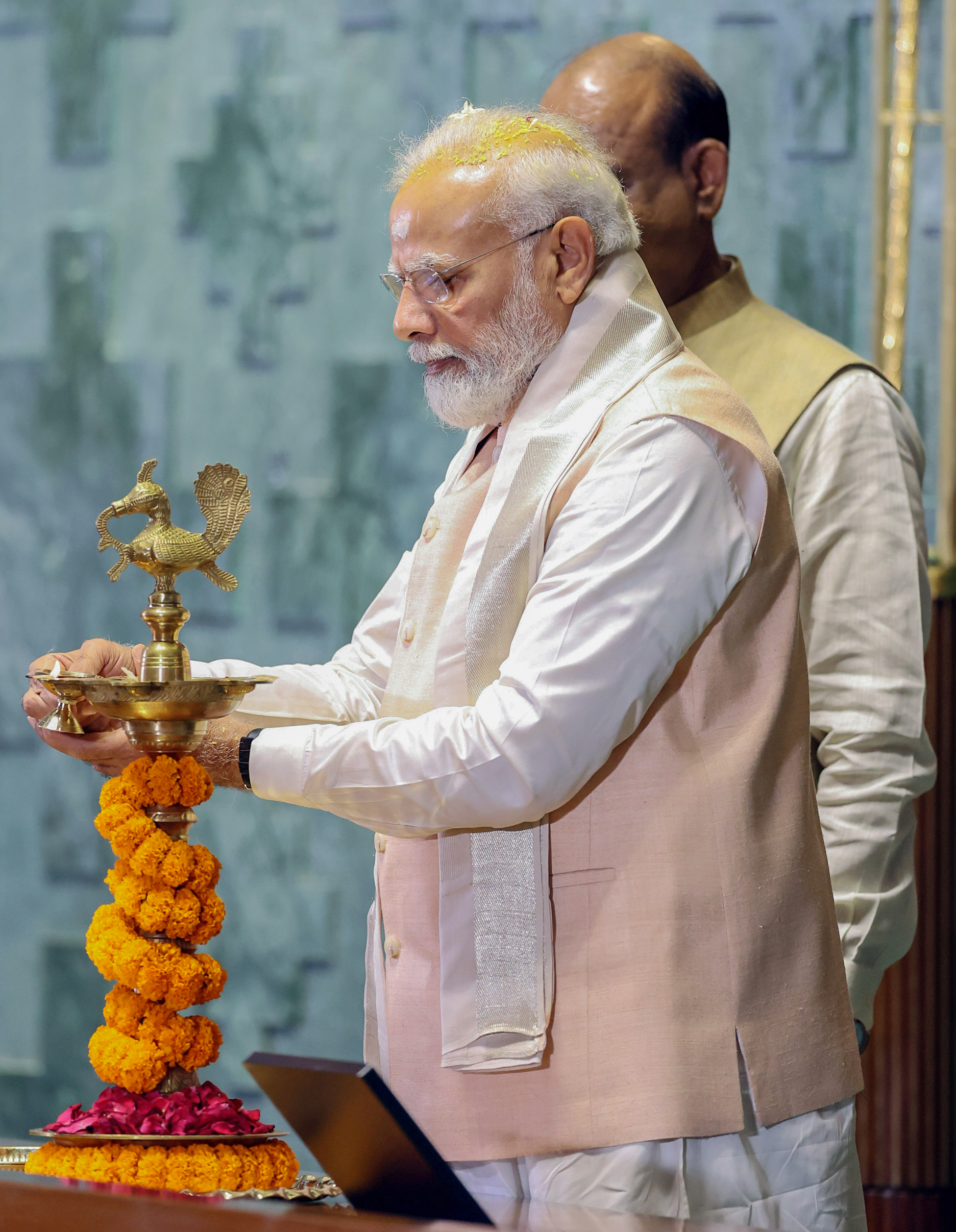
The inauguration of India’s new Parliament building on Sunday was marred by the absence of 21 opposition parties, who boycotted the event and accused Prime Minister Narendra Modi of turning it into his personal “coronation.” They emphasised that democracy is governed by the people, not by imposing structures. Opposition leaders further criticised the government for allegedly violating Constitutional norms by not extending an invitation to President Droupadi Murmu for the ceremony. Concurrently, a group of protesting wrestlers, who had accused a BJP MP of sexual harassment, were forcibly removed from Jantar Mantar as they attempted to march towards the new Parliament House.
The government has refuted the opposition’s claims, asserting that no protocols were breached, and Prime Minister Modi holds utmost respect for the President.
The Congress party described the grand inauguration as a self-glorifying act by an authoritarian prime minister, displaying contempt for parliamentary procedures. Mallikarjun Kharge, Congress chief, stressed that democracy thrives on the voices of the people, not through imposing buildings.
Amidst the controversy, the Rashtriya Janata Dal (RJD) criticised the new Parliament building’s triangular shape, likening it to a coffin, prompting a sharp response from the BJP. The BJP’s Bihar unit retorted with a tweet, juxtaposing an image of the alleged coffin with that of the new Parliament, implying that the opposition’s future is bleak. Congress leader Rahul Gandhi accused the prime minister of treating the inauguration as a coronation, emphasising that Parliament represents the voice of the people. Jairam Ramesh, Congress general secretary, lamented the absence of President Droupadi Murmu, denouncing the self-aggrandizing prime minister and his disregard for parliamentary procedures.
Supriya Srinate, Congress spokesperson, held a press conference highlighting the exclusion of the president from the inauguration, which she deemed reflective of the government’s anti-woman and anti-Dalit stance. She labelled the event as Modi’s “rajtilak” (coronation).
Sharad Pawar, president of the Nationalist Congress Party (NCP), criticised the rituals performed during the inauguration, asserting that they represented a step backward for the country. He expressed concern that the ceremony contradicted Jawaharlal Nehru’s vision of a modern and scientifically inclined India. The Left parties drew parallels between the prime minister’s inauguration of the new Parliament building and a monarch’s coronation, asserting that it reduced the citizens to mere subjects.
Sitaram Yechury, CPI(M) General Secretary, criticised the ceremony’s loud propaganda and the proclamation of a “new India” in the absence of the President, Vice President, and opposition parties. He highlighted that the Sengol, an ancient symbol, is irrelevant in a democracy where people elect the government.
Despite the opposition’s boycott, Bahujan Samaj Party (BSP) leader Mayawati extended her congratulations to the government for the inauguration. She urged the authorities to utilise the new building in the best interests of the country, following the humane ideals of Dr. Bhimrao Ambedkar and the spirit of the Constitution. While the opposition staged protests and demonstrations, the BJP leaders and Union ministers commended Prime Minister Modi’s dedication of the new Parliament building to the nation. They praised the installation of the Sengol as a continuation of India’s rich cultural traditions.
Union Minister Arjun Ram Meghwal condemned the opposition’s boycott as a display of cheap politics and criticised their scepticism regarding the significance of the historic Sengol.